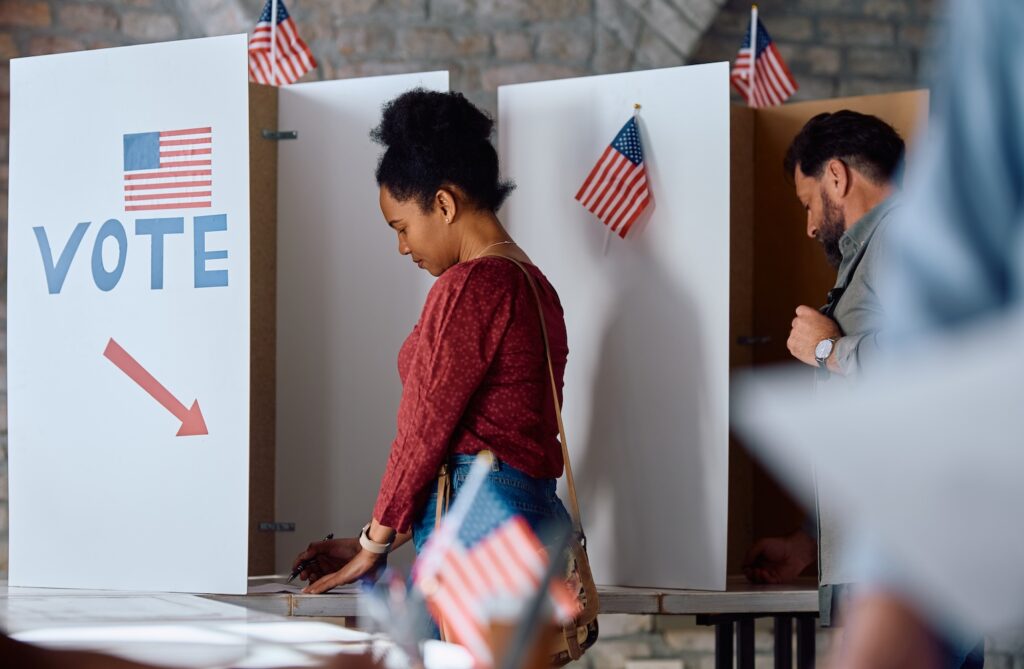School choice is on the ballot in these 3 states
Under the looming shadow of a monumental presidential election are three state ballot measures that could change the lives of hundreds of thousands of K-12 students.
Measures in Colorado,…

Under the looming shadow of a monumental presidential election are three state ballot measures that could change the lives of hundreds of thousands of K-12 students.
Measures in Colorado, Kentucky and Nebraska give voters a chance to pave the way for school choice programs that promise families more options to meet their children’s educational needs.
Colorado
In the Centennial State, the ballot features Amendment 80, also called the Constitutional Right to School Choice Initiative.
If passed, the constitutional amendment stipulates:
“The people of the state of Colorado hereby find and declare that all children have the right to equal opportunity to access a quality education; that parents have the right to direct the education of their children; and that school choice includes neighborhood, charter, private, and home schools, open enrollment options, and future innovations in education.
“Each K-12 child has the right to school choice.”
The amendment helps rewrite the state’s so-called Blaine Amendment, which forbids public funding going to private or religious schools, making it difficult to enact school choice programs.
A product of 19th-century anti-immigrant and anti-Catholic bigotry, Blaine Amendments appear in various forms in 37 state constitutions.
Kentucky, Colorado and Nebraska all have one, and the constitutionality of school choice programs has been challenged because of them.
But several Supreme Court rulings have begun to chip away at the Blaine Amendments’ constitutionality. Some policymakers have even tried to repeal them – though only Louisiana has successfully done so.
Colorado’s ballot measure is supported by numerous Republican legislators and education organizations such as the Advance Colorado Institute and the Colorado Catholic Conference.
“I just think that parents should be in charge of education,” says Michael Fields, president of Advance Colorado Action and sponsor of the amendment. “I think it’s easier when [parents] have resources to send their kid to the school that they want to. I believe that there’s good fits for kids in all different types of education.
“I just think that the options should be available for everybody.”
Amendment 80 is opposed by groups including the state Democratic Party, the ACLU, the state teachers’ union and the League of Women Voters.
“They’re using the innocuous word of ‘choice’ as a vehicle for what opens the door clearly for a voucher scheme,” claims Kevin Vick, president of the Colorado Education Association.
However, polling from EdChoice reveals strong support among Coloradans for education freedom, with 70% responding positively to ESAs (education savings accounts).
Given all the options, only 41% of parents report preferring a traditional public school for their child.
Kentucky
Kentucky’s Constitutional Amendment 2 – alternatively called the Allow State Funding for Non-Public Education Amendment – started as a piece of legislation earlier this year.
It was approved by overwhelming majorities in both the state House and Senate but faced pushback from Democrat Gov. Andy Beshear, who opposes virtually all forms of education choice, despite sending his own children to private school.
If approved, the amendment would add the following section to the Kentucky constitution:
“The General Assembly may provide financial support for the education of students outside the system of common schools.”
The measure is supported by Republican congressmen, including U.S. Sen. Rand Paul, but opposed by Beshear, Lt. Gov. Jacqueline Coleman and the Kentucky Education Association.
Nevertheless, EdChoice polling showed strong support for school choice among Kentucky voters and parents – including support for ESAs, vouchers and charter schools.
Nebraska
Voters in the Cornhusker State will weigh in on Referendum 435 to decide the fate of an education scholarship program approved by the state legislature.
Defending the program are advocates such as Gov. Jim Pillen, state and federal congressmen and the American Federation for Children.
Like Kentucky and Colorado, its opponents are mostly Democrats, the teachers’ union, the NAACP and other leftist groups.
However, a recent survey found roughly two-thirds of Nebraska voters support school choice.
“People in Nebraska want kids and families – especially those that don’t have the resources – to have the best opportunity to succeed with their education. That I am confident about,” Jim Vokal, CEO of the Platte Institute, previously told The Lion.



